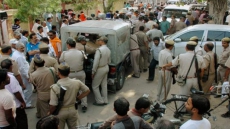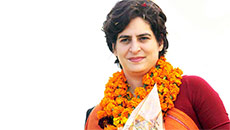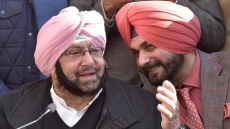The mysterious skeletons of Roopkund Lake in Uttarakhand contain bones from an enigmatic group of eastern Mediterranean people that travelled to the Indian Himalayan site around 220 years ago, a large-scale study conducted by an international team of scientists has revealed.
The study, published in the journal Nature Communications, found that the skeletons of Roopkund Lake belong to genetically highly distinct groups that died in multiple periods in at least two episodes separated by one thousand years.
Situated at over 5000 metres above sea-level in the Indian Himalayas, Roopkund Lake has long puzzled researchers due to the presence of skeletal remains from several hundred ancient humans, scattered in and around the lake's shores, earning it the nickname Skeleton Lake or Mystery Lake.
"Roopkund Lake has long been subject to speculation about who these individuals were, what brought them to Roopkund Lake, and how they died," said Niraj Rai, of the Birbal Sahni Institute of Palaeosciences in Lucknow, Uttar Pradesh.
The research reveals that the site has an even more complex history than imagined.
People with 3 very distinct ancestries died at Roopkund at very different times:
— manasataramgini (@blog_supplement) August 21, 2019
The Roopkund A are typical Indians. They died in two events dated to approximately 675–769 CE and 894–985 CE).
The Roopkund B individuals are most remarkably like Greeks or Cretans: They died around pic.twitter.com/HTV6VxXdD9
Ancient DNA obtained from the skeletons of Roopkund Lake -- representing the first ancient DNA ever reported from India -- reveals that they derive from at least three distinct genetic groups.
"We first became aware of the presence of multiple distinct groups at Roopkund after sequencing the mitochondrial DNA of 72 skeletons," said Kumarasamy Thangaraj from the Centre for Cellular and Molecular Biology (CCMB) in Hyderabad.
"While many of the individuals possessed mitochondrial haplogroups typical of present-day Indian populations, we also identified a large number of individuals with haplogroups that would be more typical of populations from West Eurasia," said Thangaraj, who started the project more than a decade ago.
Whole-genome sequencing of 38 individuals revealed that there were at least three distinct groups among the Roopkund skeletons.
The first group is composed of 23 individuals with ancestries that are related to people from present-day India, who do not appear to belong to a single population but instead derived from many different groups.
Roopkund lake skeletons put a date to Nanda Devi Yatra origin — ‘before 7th Century’
— Shekhar Gupta (@ShekharGupta) August 21, 2019
Spl correspondent Mohana Basu @AGirlHasWords reports#ThePrintSciencehttps://t.co/lajAxgX4xw
Surprisingly, the second largest group is made up of 14 individuals with ancestry that is most closely related to people who live in the eastern Mediterranean, especially present-day Crete and Greece. A third individual has ancestry that is more typical of that found in Southeast Asia.
"We were extremely surprised by the genetics of the Roopkund skeletons. The presence of individuals with ancestries typically associated with the eastern Mediterranean suggests that Roopkund Lake was not just a site of local interest, but instead drew visitors from across the globe," said Eadaoin Harney of Harvard University in the US.
Stable isotope dietary reconstruction of the skeletons also supports the presence of multiple distinct groups.
"Individuals belonging to the Indian-related group had highly variable diets, showing reliance on C3 and C4 derived food sources. These findings are consistent with the genetic evidence that they belonged to a variety of socioeconomic groups in South Asia," said Ayushi Nayak of the Max Planck Institute for the Science of Human History in Germany.
"In contrast, the individuals with eastern Mediterranean-related ancestry appear to have consumed a diet with very little millet," Nayak said.
Experts also say that the popular Nanda Devi Raj Jaat Yatra of Uttarakhand may have drawn pilgrims since as far back as the 7th century. The pilgrimage may even have attracted tourists from eastern Mediterranean regions such as Greece and Crete in the 17th century.
These and many other revelations were made in the first whole genome DNA analysis of skeletal remains found in and around the shores of Roopkund lake on the yatra route.
The Nanda Devi Raj Jaat Yatra is one of the toughest pilgrimages that passes through the Roopkund area. This is possibly the first scientific study to show that the pilgrimage was popular from before the 7th century, Rai said.
The research also found 14 individuals having ancestry most closely related to people who live in the eastern Mediterranean, especially present-day Crete and Greece. A third individual has ancestry that is more typical of that found in Southeast Asia.
“The most logical explanation is that a group of Greeks accompanied Indian pilgrims to the site. They may have undertaken the trip as an adventure. By the 17th century, the trek was probably easier as porters were available to assist people. Eventually, these tourists may have been separated from the Indian group and gotten lost,” Rai told.
Rai speculates that the group of foreign tourists may have died from hypoxia.
“The presence of individuals with ancestries typically associated with the eastern Mediterranean region suggests that Roopkund Lake was not just a site of local interest but drew visitors from across the globe,” said Eadaoin Harney of Harvard University.
Ancient DNA from skeletons at the glacial Roopkund Lake in Uttarakhand, India reveals Mediterranean migrants in Indiahttps://t.co/snAOhZJRwIhttps://t.co/3gOHlB3koB
— The Indian Interest (@IndianInterest) August 20, 2019
The findings also revealed a second surprise about the skeletons of Roopkund Lake, researchers said.
Radiocarbon dating indicates that the skeletons were not deposited at the same time, as previously assumed.
Instead, the study finds that the two major genetic groups were actually deposited approximately 1000 years apart.
First, during the 7th-10th centuries, individuals with Indian-related ancestry died at Roopkund, possibly during several distinct events, researchers said.
It was not until sometime during around 1800 AD that the other two groups, likely composed of travellers from the eastern Mediterranean and Southeast Asia arrived at Roopkund Lake, they said.
"This finding shows the power of radiocarbon dating, as it had previously been assumed that the skeletons of Roopkund Lake were the result of a single catastrophic event," said Douglas J Kennett of the University of California, Santa Barbara in the US.
Ancient DNA from the skeletons of Roopkund Lake reveals Mediterranean migrants in India https://t.co/82mIzqyuKm pic.twitter.com/HP41FHJgHv
— Keerthik Sasidharan (@KS1729) August 21, 2019
"It is still not clear what brought these individuals to Roopkund Lake or how they died. We hope that this study represents the first of many analyses of this mysterious site," Rai added.



